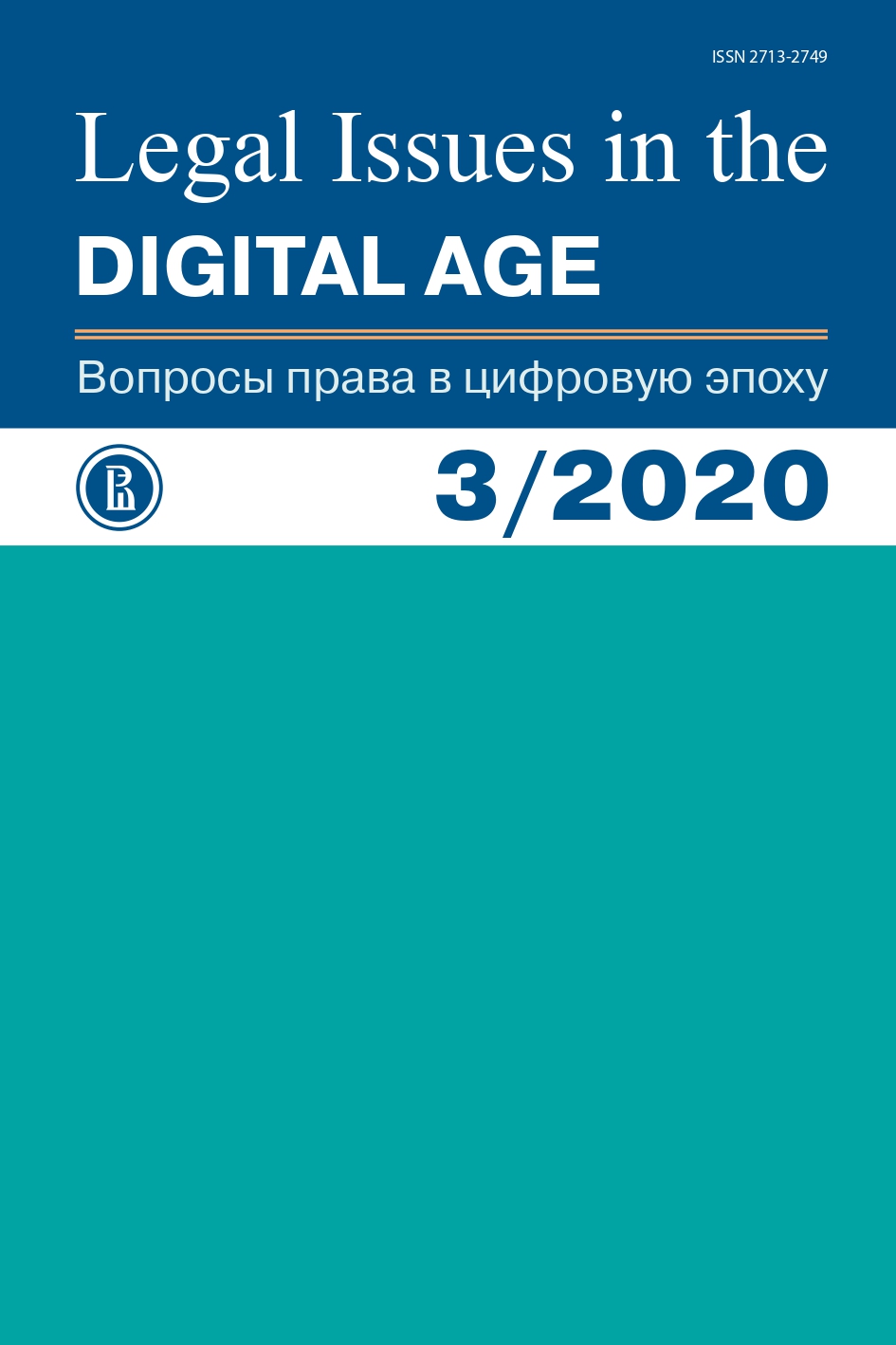Internet Freedom of Speech and Privacy Protection: Is There a Contradiction? (A Study of Rating Sites)
Abstract
While the Internet promotes widespread communication, this communication is often anonymous. How to draw the line between freedom of speech and privacy? The specifics of protecting privacy and business reputation against violation by rating sites are discussed in this article. Do the activities of rating sites need special legal regulation? The author believes that the general rules on privacy and freedom of speech are sufficient for regulating these new relations. The respective court practice of Germany, the UK and the USA is analysed. The tentative conclusion is that rating sites do not contradict the law if they do not disseminate information about the private lives of people or encourage rude and scornful assessments. The problem of using personal data is examined. The author holds the view that the activities of rating sites can be beneficial for society and therefore should not be banned entirely. However, site owners should be allowed to use personal data only upon the consent of the owners of the latter.
References
Barendt E. (2016) Anonymous Speech: Literature, Law and Politics. L.: Bloomsbury, 200 p.
Cheung A., Schulz W. (2018) Reputation Protection on Online Rating Sites. Stanford Technology Law Review, no 21, pp. 322–326.
Cohen J. (2013) What Privacy is For. Harvard Law Review, vol.126, pp. 1904–1933.
Erdos D. (2018) Intermediary publishers and European data protection: Delimiting the ambit of responsibility for third-party rights through a synthetic interpretation of the EU acquisition. International Journal of Law and Information Technology, vol. 26, pp. 189–225. Available at: https://academic.oup.com/ijlit/article-abstract/26/3/189/5033541 (accessed: 09.08.2019)
Erdos D. (2015) From the Scylla of Restriction to the Charybdis of License? Exploring the Present and Future Scope of the ʻSpecial Purposesʼ Freedom of Expression Shield in European Data Protection. Common Market Law Review,vol. 52, pp. 119–154.
Hinz A. (2011) Attitudes of German Teachers and Students towards Public Online Ratings of Teaching Quality. Electronic Journal of Research in Educational Psychology, no 24, pp. 745–764. Available at: http://www.investigacion-psi-copedagogica.org/revista/articulos/24/english/Art_24_570.pdf. (accessed: 19.12.2019)
Roessler B. (2005) The Value of Privacy. Cambridge: Polity Press, 288 p.
Ruhmkorf A. (2014) Ratemylegalrisk.com — The Legality of Online Rating Sites Relating to Individuals in Data Protection Law. Intellectual Property Forum, vol. 96, рр. 8–9, 55–67.
Scaife L. (2015) Handbook of Social Media and the Law. N.Y.: Informa Law, 388 p.
Scheuer A., Schweda S. (2011) The Protection of Personal Data and the Media. Limits to the Use of Personal Data, no 6, рp. 7–28.
Schoeman F. (1992) Privacy and Social Freedom. Cambridge: Cambridge University Press, 240 p.
Schulz W. (2018) Regulating Intermediaries to Protect Privacy Online — the Case of the German NetzDG. HIIG Discussion Paper Series, 2018-01. Available at: https://www.hiig.de/wp-content/uploads/2018/07/SSRN-id3216572.pdf. (accessed: 11.12.2019)
Serna F., Iniesta J. (2018) The delimitation of freedom of speech on the Inter-net: the confrontation of rights and digital censorship. Available at: https://pdfs.semanticscholar.org/6220/95b49c43687ba4766e1888f5bbdaa46559c5.pdf?_ga=2.69714838.764201525.1565323822-198308019.1565323822 (accessed: 11.12.2019)
Strahilevitz L. (2008) Reputation Nation: Law in an Era of Ubiquitous Personal Information. NW. L. Rev., vol. 102, pp. 1668–1738.
Ungern-Sternberg S. (2019) Demokratische Meinungsbildung und künstliche Intelligenz (Democracy, Public Opinion Formation, and Artificial Intelligence). In: Antje von Ungern-Sternberg S. Demokratie und Künstliche Intelligenz. Tübingen: Mohr Siebeck, pp. 1–28. Available at https://papers.ssrn.com/sol3/pa-pers.cfm?abstract_id=3400756 (accessed: 11.12.2019)
Authors who publish with this journal agree to the Licensing, Copyright, Open Access and Repository Policy.










